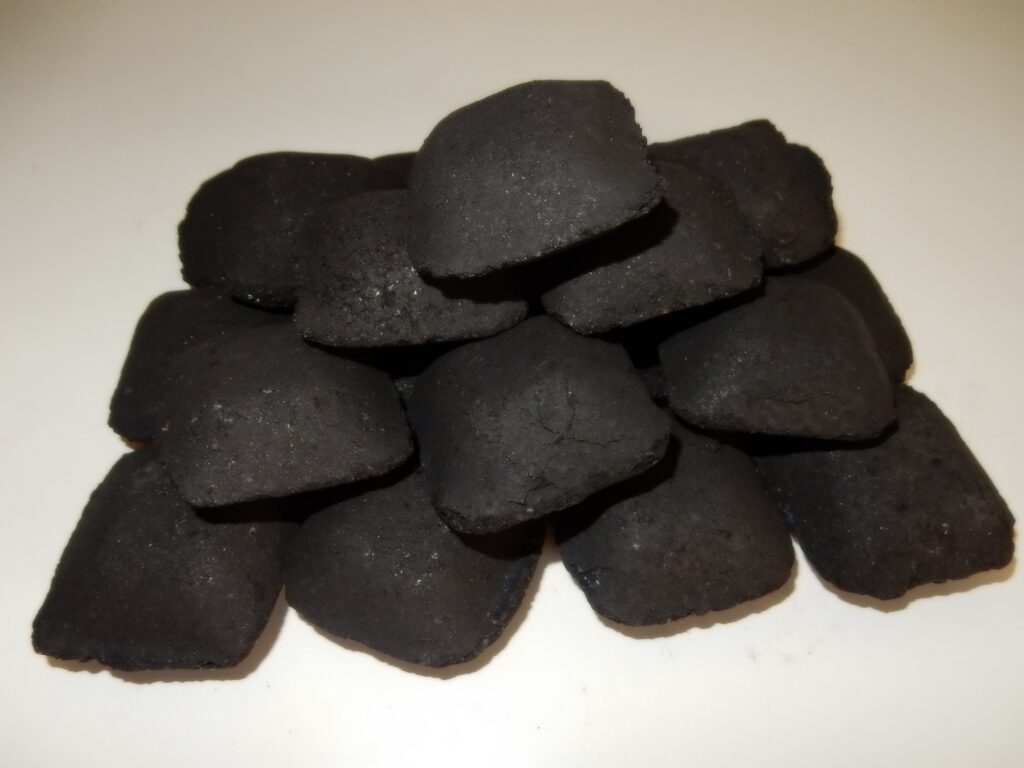- +91 9945650128
- info@arstaeco.com
- Tiptur, Karnataka, India

ArSta eco
Biocarbon

Biocarbon
Biocarbon, often referred to as “green coal,” is a valuable solid product resulting from the controlled thermal degradation of biomass at medium to high temperatures, all while being devoid of oxygen. This process, known as carbonization, involves subjecting biomass materials such as wood, agricultural residues, or organic waste to elevated temperatures in a controlled environment, which drives off volatile components and leaves behind a stable and energy-rich solid material.
The significance of biocarbon lies in its dual role as an efficient energy carrier and an environmentally friendly alternative to traditional fossil fuels. In comparison to raw biomass, biocarbon possesses a substantially higher heating value on a per-mass basis. This characteristic makes it a potent energy source for various applications, from heat generation to electricity production, while contributing to a reduction in greenhouse gas emissions.
One of the key advantages of biocarbon is its enhanced energy density when subjected to compression. This property enables the creation of compact and easily transportable fuel pellets or briquettes, facilitating storage, handling, and distribution. Furthermore, the carbonization process leads to the elimination of a significant portion of volatile components, resulting in improved combustion properties. Biocarbon burns more cleanly and efficiently compared to raw biomass, emitting fewer pollutants and minimizing particulate matter, which is especially beneficial for mitigating air pollution and promoting sustainable energy practices.
Importantly, biocarbon serves as a promising avenue for mitigating climate change and transitioning away from reliance on fossil fuels. Due to its renewable origin and the fact that the carbon released during its combustion was originally captured from the atmosphere by the biomass, biocarbon is considered carbon neutral. This means that the net carbon emissions from burning biocarbon are balanced by the carbon dioxide absorbed during the growth of the biomass, thus contributing to a closed carbon cycle and overall reduction in carbon emissions.
Beyond its applications in energy production, biocarbon finds utility in various industrial sectors, particularly in metallurgy. It can act as a substitute for traditional fossil coal and coke in processes like iron and steel production. By utilizing biocarbon, industries can reduce their dependence on fossil resources, decrease the environmental impact of their operations, and align with sustainable practices.
In conclusion, biocarbon stands as a versatile and eco-friendly alternative to conventional fossil fuels. Its production through controlled carbonization of biomass yields a solid, energy-dense material with favorable combustion properties. Its role as a greener substitute for coal, coupled with its carbon-neutral nature, positions biocarbon as a pivotal player in the transition to cleaner and more sustainable energy sources across various sectors, fostering a more environmentally responsible and resilient future.
- Arsta Eco bio carbon is made using agricultural Residue.
- We are able to produce high grade biocarbon because of our in-depth knowledge of feedstock and their properties and our state of art production techniques.
- The production process involves collection of agricultural Residue from the farm Gate, sorting and preparation of feedstock, Drying and sizing, Carbonisation, sorting and packing.
Our bio carbon comes in three grades and two sizes. We also produce Biocarbon to customers specifications for orders above 200Tons
1: Rhombus Pellets (roll formed)
2: Hexagonal Logs (extruded)

Specifications
Grade 1
Fixed Carbon: Greater than 65%
Ash: Less Than 12%
Heavy Metals: Nil
Sulphur: less than 0.001
Grade 2
Fixed Carbon: Greater than 72%
Ash: Less Than 8%
Heavy Metals: Nil
Sulphur: less than 0.001
Grade 3
Fixed Carbon: Greater than 85%
Ash: Less Than 5%
Heavy Metals: Nil
Sulphur: less than 0.001